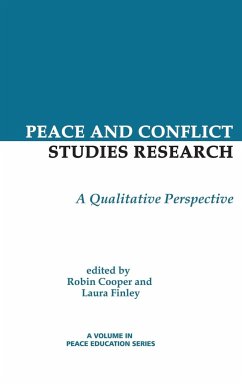
Indus Water Conflict and Peace Building
India and Pakistan
Versandkostenfrei!
Versandfertig in 1-2 Wochen
25,99 €
inkl. MwSt.

PAYBACK Punkte
13 °P sammeln!
The incongruity between the eco-geographical region and territorial boundaries of state sovereignties carved out on Westphalia convention has led to eruption of conflicts and disputes between states over the river waters that have transcended the boundaries of states. Most of the rivers in the world for this reason have become trans-boundary and meshed in water sharing conflicts. With water becoming scarce day by day and plummeting to its lowest level under the earth and river water dried up, polluted, and shrinking of snow cover because of global warming and climate change the scenario for di...
The incongruity between the eco-geographical region and territorial boundaries of state sovereignties carved out on Westphalia convention has led to eruption of conflicts and disputes between states over the river waters that have transcended the boundaries of states. Most of the rivers in the world for this reason have become trans-boundary and meshed in water sharing conflicts. With water becoming scarce day by day and plummeting to its lowest level under the earth and river water dried up, polluted, and shrinking of snow cover because of global warming and climate change the scenario for dispute, competition and conflict among people and states for the little water available has been exacerbated. Apart from water sharing what has created hornet's nest between nations is the construction of dams and projects by the upper riparian states over the rivers within their boundaries and their sovereign will to leave the amount of water it wants to leave to lower riparian states. This is no where so conspicuous than in the Indo- Pak dispute over river water sometimes being weaponized or played as a catalyst for other territorial conflicts and wars between them. Present book is an attempt at analyzing, explaining and critically examining the various aspects of the Indus water treaty which stands as an internationally recognized legal instrument under the aegis of World Bank to resolve the outstanding river water sharing that erupted after the partition of Bharat into two separate sovereign states India and Pakistan. It is said future wars will be over water in view of its burgeoning scarcity, dwindling water level and severity of climate change. But amicable resolution of such water issues between nations through dialogue with active participation of leaders, impartial experts and environmental professionals can lead to peace building.














